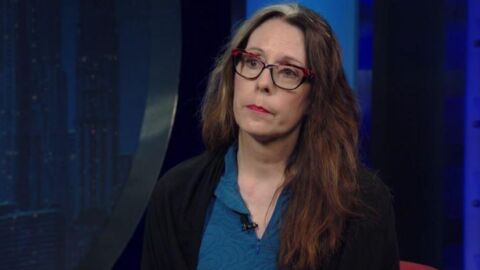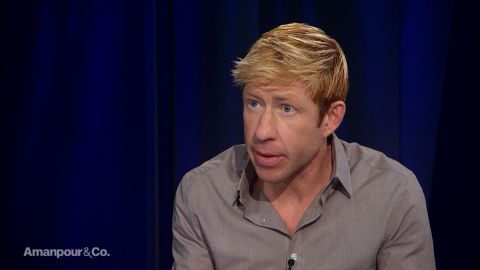Read Transcript EXPAND
CHRISTIANE AMANPOUR: Your book has created quite a storm. It’s a bestseller. Who knew that sleep was going to be such — something people were so hungry to know more about. Did you know?
MATTHEW WALKER, AUTHOR, “WHY WE SLEEP”: I didn’t have any high hopes for the book necessarily as a first- time author, you know, one never dreams of success. But I think what actually happened was the perfect storm that over the past 40 years, we’ve seen this remarkable escalation of knowledge regarding why we sleep. And 40 years ago, we used to say why would we sleep? And the answer is we sleep to cure sleepiness, which is a completely empty answer. It’s like saying I eat to cure hunger. It tells you nothing about the physiological benefits. So the science has been remarkable in its expansion. But married with that in lockstep has been this pernicious erosion of sleep time throughout industrialized nations. Back in 1942, the average American adult was sleeping 7.9 hours. Now, that’s down to 6 hours and 30 minutes and that’s the average.
AMANPOUR: And that’s significant, that just one-hour difference?
WALKER: That’s a dramatic difference. I mean you could imagine saying it took mother nature 3.6 million years to put this thing called eight hours of sleep necessity in place. And then within the space of 50 or 60 years, we’ve lopped off 20 percent of that. That would be like saying well, I’m going to throttle you and constrain your oxygen by 20 percent so you’re down to 80 percent saturation. Would that really have a harmful effect?
AMANPOUR: Where did this idea of magic number of eight hours’ sleep come from? I mean how do you measure how much a healthy body needs?
WALKER: So what you can essentially do is it’s almost like a dose-response drug test, as it were. You sort of start scaling back the amount of sleep and you look at what point does the human being start to fail? And when we speak about failure, we’re talking about measurements of both brain and body. And what you can see is that as soon as you get below seven hours of sleep, human beings start to demonstrate impairment.
AMANPOUR: Such as everybody sort of immediately thinks about wow, what would that mean if I was operating heavy machinery or God forbid a car on the road and I’m drowsy?
WALKER: That’s right. So I mean drowsy driving is a great example. Fatigue-related accidents will actually cost us more lives on our roads than either drugs or alcohol combined. I mean that’s —
AMANPOUR: Seriously? Today?
WALKER: Today. And you can ask why is that? Why is sleep so deafening in that regard? Well, when you’re drunk, inebriated or high, you typically respond too late in a car but you still typically respond. When you fall asleep or have what we call a micro sleep behind the wheel, at that point, there’s no response at all. So there’s a two-ton missile traveling at 70 miles an hour down the road and no one is in control. That’s why sleep-related driving accidents are so much more deathly.
About This Episode EXPAND
Two youth workers, Cure Violence’s Mikey Davis and the Brixton Soup Kitchen’s Mahamed Hashi, discuss street violence as a public health issue; author Laurie Halse Anderson on “Shout,” her memoir, and on why sexual abuse can shame victims into silence; and neuroscientist Matthew Walker on why sleeping more could improve our health and change our lives.
LEARN MORE


